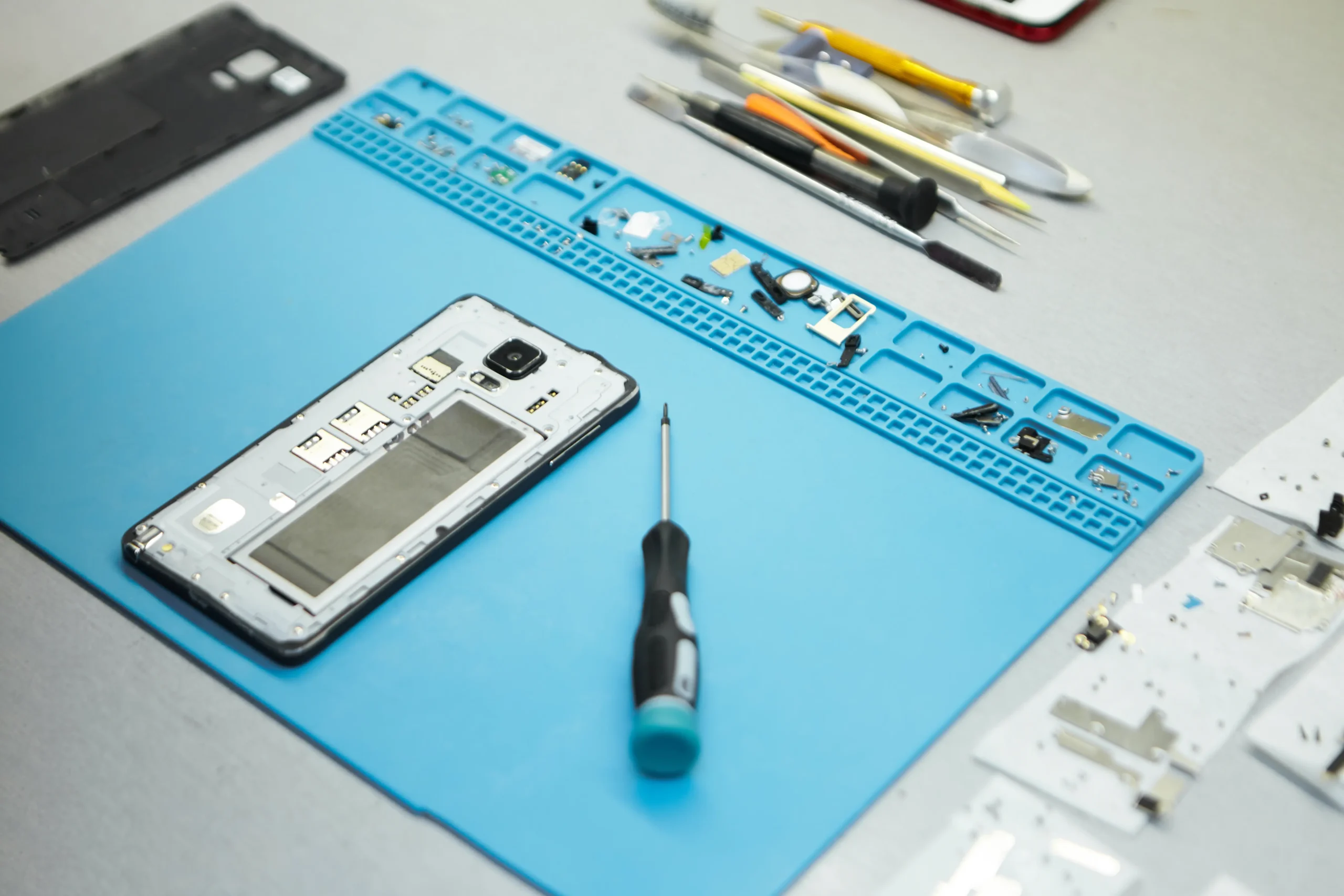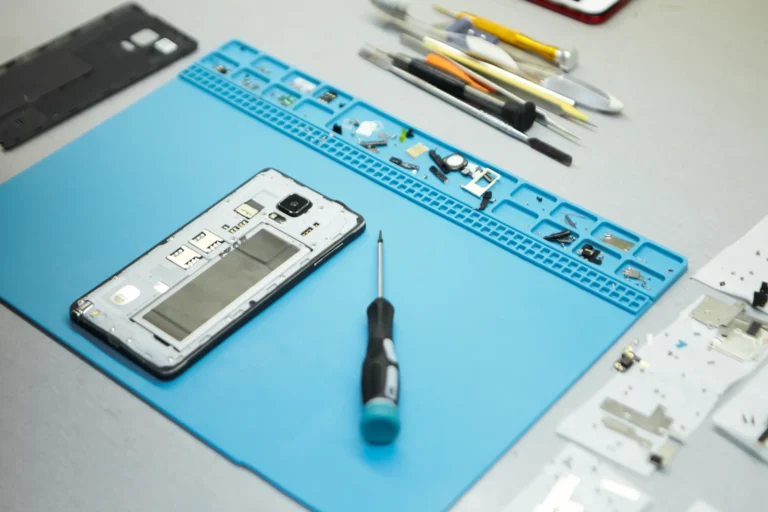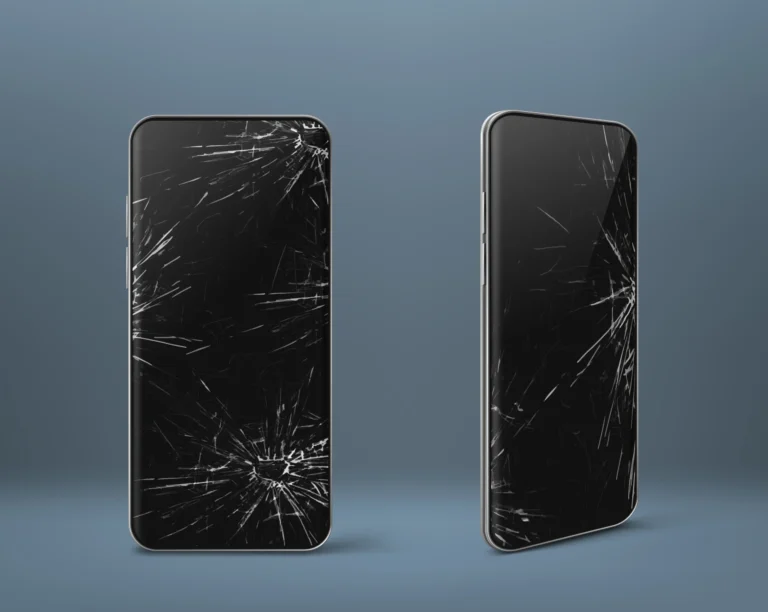Smartphones are essential in daily life, and when something goes wrong—a cracked screen, a battery that won’t hold a charge, or a malfunctioning charging port—it’s tempting to handle the problem yourself. DIY mobile repairs are attractive because they promise quick solutions, lower costs, and a sense of accomplishment. But as many people discover, what starts as a simple fix can quickly become complicated. Professional repair services exist for a reason: they bring experience, specialized equipment, and quality control that home efforts often can’t match. Understanding the differences between DIY and professional repair will help you make an informed decision when your phone needs attention.
Why DIY Mobile Repairs Are So Popular
The do-it-yourself culture has exploded in recent years, fueled by step-by-step videos, detailed blogs, and inexpensive repair kits. Anyone can order a DIY phone screen replacement kit or a mobile repair toolkit and start experimenting. For basic issues such as swapping a battery or replacing a back cover, this approach can work well.
People choose phone repair at home for a variety of reasons:
- Cost control: Avoiding labor fees is appealing.
- Convenience: You don’t have to travel to a shop or wait for a technician.
- Learning: Tech-savvy users enjoy the challenge of understanding how their devices work.
With a good smartphone repair guide, careful planning, and patience, minor fixes can indeed be handled at home. However, DIY isn’t risk-free.
The Hidden Complexities of Modern Smartphones
Today’s devices are slim, powerful, and packed with delicate components. Beneath the glass screen and sleek casing lies a maze of microchips, cables, and connectors. Some of these parts require phone repair soldering to remove or reattach. Others need the controlled heat of a heat gun for phone repair to loosen adhesive without damaging neighboring components.
Even a simple screen replacement can involve:
- Disconnecting multiple ribbon cables.
- Calibrating the new display.
- Ensuring waterproof seals remain intact.
Without the correct technique and tools—such as micro soldering tools for tiny circuits—an innocent mistake can cause more damage than the original problem.
Why Professional Services Stand Out
A certified cell phone repair service offers more than just a fix. Technicians bring years of experience and advanced diagnostics that reveal issues the average person might miss. Their work typically involves:
- Thorough evaluation: They identify the root cause instead of addressing only the visible symptom.
- Specialized equipment: Professional shops have high-grade micro soldering tools, precision phone repair soldering stations, and industrial heat guns for phone repair.
- Quality parts: They use components that meet or exceed manufacturer standards.
- Warranty and accountability: Reputable providers guarantee their repairs.
Because of these advantages, professional repairs often last longer and preserve the phone’s performance and resale value.
DIY vs. Professional: A Quick Comparison
| Factor | DIY Mobile Repairs | Professional Service |
| Skill Requirement | Varies from basic to advanced; guided by online resources | Backed by formal training and certifications |
| Tools and Equipment | Home kits, mobile repair toolkit, small heat gun | Industrial diagnostics, micro soldering tools, pro gear |
| Risk of Additional Damage | Higher, especially for intricate tasks | Low, with warranties or guarantees |
| Time Commitment | Can take hours due to learning curve | Often same-day or next-day service |
| Long-Term Reliability | Depends on individual skill and part quality | Consistently tested and verified |
| This table highlights a key takeaway: DIY can be appropriate for minor issues, but professional service provides superior reliability for complex repairs. |
Key Mobile Phone Repair Tips for DIY Enthusiasts
If you still want to attempt your own repair, preparation is crucial. Here are essential guidelines:
- Study a detailed smartphone repair guide before touching any screws. Understanding the model-specific process reduces surprises.
- Invest in quality tools. A sturdy mobile repair toolkit, a precision screwdriver set, and a small heat gun for phone repair can save time and prevent damage.
- Create a clean workspace free from dust and static electricity. Tiny particles can interfere with delicate electronics.
- Label and organize components. Keep screws in order to avoid confusion during reassembly.
- Know your limits. Board-level fixes or microscopic soldering often require micro soldering tools and professional expertise.
These precautions increase the chance of a successful outcome when attempting phone repair at home.
Repairs That Frequently Require a Professional Touch
Some tasks might look manageable but hide unexpected complexity:
- Water damage treatment: Moisture can corrode connectors and cause long-term problems invisible to the naked eye. Professional chemical cleaning and advanced diagnostics are essential.
- Motherboard replacements: Swapping or repairing chips demands expert phone repair soldering and precise temperature control.
- High-end display replacement: Modern OLED or curved screens require calibrated installation and strong yet careful use of a heat gun for phone repair.
Even seasoned hobbyists often turn to professionals for these challenges.
The Tools Behind Professional Quality
One reason professionals outperform DIY efforts is access to specialized equipment:
- Micro soldering tools that handle microscopic circuits.
- Industrial-strength heat guns for phone repair with adjustable temperature for safe adhesive removal.
- High-resolution microscopes to inspect solder joints.
- Precision phone repair soldering stations for secure, lasting connections.
These tools, combined with training, reduce the likelihood of repeat problems and protect delicate smartphone components.
Extending Device Life Through Expert Care
Professional technicians focus not only on repairing what’s broken but also on preventing future issues. After a successful repair, they often perform:
- Full diagnostic checks to catch hidden faults.
- Battery calibration and thermal testing to ensure efficiency.
- Software updates to maintain system stability.
This holistic approach can add years to a phone’s lifespan and reduce electronic waste, which benefits both your wallet and the environment.
Knowing When to Switch From DIY to a Professional
A balanced strategy works best. Try simple fixes—such as replacing a removable battery or back cover—if you feel confident and well-prepared. But when you encounter:
- Persistent charging problems.
- Signs of water intrusion.
- Repeated failure after a DIY attempt.
…it’s time to call a professional cell phone repair service. Acting quickly can prevent minor issues from turning into irreversible damage.
Building Confidence as a DIY Enthusiast
If your interest in DIY mobile repairs is as much about learning as it is about saving money, take it step by step:
- Start with non-critical tasks like replacing a phone case or cleaning a charging port.
- Use each project to become familiar with your mobile repair toolkit.
- Gradually move on to slightly more complex repairs, always referencing a trusted smartphone repair guide.
This progressive approach allows you to build skills safely while understanding when a professional’s expertise is indispensable.
Why Professional Help Ultimately Saves Time and Stress
Many people underestimate the time commitment of a seemingly simple repair. Watching a 10-minute video doesn’t account for the hour you might spend removing stubborn adhesive or troubleshooting a new problem introduced during the process. Professional services, by contrast, typically complete repairs the same day, freeing you from the frustration of trial and error.
Final Thoughts and Service Invitation
DIY repair can be empowering and cost-effective for straightforward fixes, especially if you have the correct equipment—such as a DIY phone screen replacement kit, a well-stocked mobile repair toolkit, and a heat gun for phone repair. Still, smartphones are complex machines. Tasks that involve phone repair soldering or require micro soldering tools are best left to certified experts.
Our professional team offers comprehensive diagnostics, advanced board-level repairs, and top-quality screen replacements. Whether your device needs a quick fix or intricate micro-soldering, we combine industry-grade tools with years of experience to restore your phone’s performance and reliability. When you’re ready for a repair that lasts, trust specialists who can catch what a DIY repair might miss.
Faqs
1. Are DIY mobile repairs safe for beginners?
DIY mobile repairs can be safe if you follow a reliable smartphone repair guide and use a proper mobile repair toolkit. Simple fixes like battery swaps or cleaning a charging port are manageable, but advanced work requiring phone repair soldering or micro soldering tools is best left to professionals.
2. What are the best mobile phone repair tips for first-time DIYers?
Start with easy tasks, work in a clean, static-free area, and label every screw and part. Using a quality mobile repair toolkit and a heat gun for phone repair will help you avoid damaging delicate components during your first attempt.
3. Do I need a DIY phone screen replacement kit for small cracks?
A DIY phone screen replacement kit is ideal for full screen replacements or deep cracks. For tiny surface scratches, a professional cell phone repair service may not be necessary, but for bigger damage it ensures you have the correct tools and adhesives.
4. Can I perform phone repair at home without a heat gun?
Yes, for very basic repairs, but a heat gun for phone repair makes removing glued screens or back panels much safer. Without it, you risk cracking glass or damaging cables when attempting DIY mobile repairs.
5. When should I choose a professional cell phone repair service instead of DIY?
If the problem involves motherboard issues, complex phone repair soldering, or water damage, a certified cell phone repair service is the safer option. Professionals use micro soldering tools and diagnostics that most home setups can’t match.
6. How important are micro soldering tools in advanced smartphone repairs?
Micro soldering tools are critical for fixing tiny circuits or components on a phone’s logic board. Unless you have experience with precision soldering, it’s wiser to leave such intricate repairs to a professional service.
7. What smartphone repair guide resources are most helpful for DIYers?
Look for brand-specific manuals or high-quality video tutorials that detail every step. A good smartphone repair guide should explain the use of a mobile repair toolkit, phone repair soldering techniques, and how to safely apply a heat gun.
8. Will using a mobile repair toolkit void my phone’s warranty?
Opening your phone for DIY mobile repairs often voids the manufacturer’s warranty. If your device is still under warranty, consider a professional cell phone repair service to avoid losing future coverage.
9. Can phone repair soldering be learned at home?
Basic soldering can be learned with practice, but phone repair soldering on delicate circuit boards is challenging. Attempting it without training and the right micro soldering tools can cause irreversible damage.
10. What advantages do professionals offer over DIY mobile repairs?
Certified technicians use industrial equipment like micro soldering tools and calibrated heat guns for phone repair. Their experience and quality parts ensure longer-lasting results than most phone repair at home efforts.



